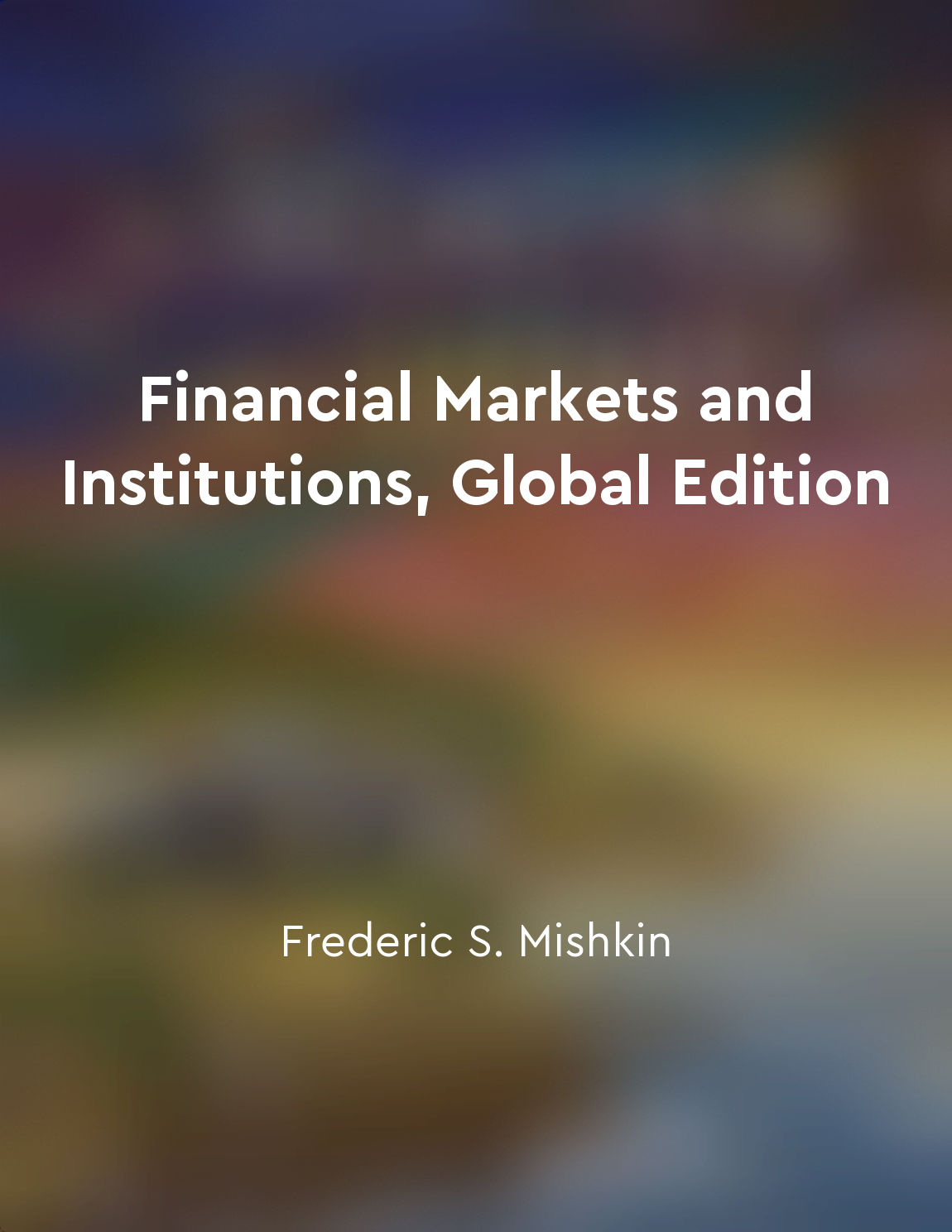Shadow banking activities operate outside traditional regulatory frameworks from "summary" of Financial Markets and Institutions, Global Edition by Frederic S. Mishkin,Stanley G. Eakins
Shadow banking activities refer to a range of financial activities conducted by non-bank financial institutions, such as hedge funds, money market funds, and investment banks, that operate outside the traditional regulatory frameworks that govern banks. These activities often involve the creation and trading of complex financial products, such as mortgage-backed securities and collateralized debt obligations, that can have significant implications for the stability of the financial system. One key characteristic of shadow banking activities is their reliance on short-term funding sources, such as repurchase agreements and commercial paper, to finance their operations. These funding sources can be volatile, as they can be quickly withdrawn in times of financial stress, leading to liquidity problems for shadow banks that can spill over into the broader financial system. Another key feature of shadow banking activities is their use of off-balance sheet structures to shift risk away from traditional banks and onto investors. This can create opacity in the financial system, as the true extent of risk exposure may not be immediately apparent to regulators or investors. This lack of transparency can make it difficult to assess and manage systemic risks that may arise from shadow banking activities. The rapid growth of shadow banking activities in recent years has raised concerns among policymakers and regulators about the potential for these activities to destabilize the financial system. While shadow banking can provide valuable services, such as increasing liquidity and efficiency in financial markets, it also poses risks that need to be carefully monitored and managed. As such, efforts have been made to bring shadow banking activities more fully within the regulatory framework to enhance transparency and reduce systemic risk.Similar Posts
Regulatory harmonization enhances crossborder cooperation
Regulatory harmonization plays a crucial role in fostering cooperation across borders. When regulations are aligned and standar...
The arrogance of Wall Street executives
The hubris of Wall Street executives is a central theme in The Big Short. These individuals were so convinced of their own inte...
Government policies can mitigate the impact of business cycles
Government policies play a crucial role in managing the impact of business cycles on the economy. During periods of economic ex...
Overconfidence prevailed
The prevailing sentiment during the stock market boom was one of unwavering confidence. Investors were convinced that the marke...
Political intrigue shaping the fate of nations
In the grand tapestry of history, the threads of political intrigue are intricately woven, shaping the fate of nations with met...
The cost of capital influences investment decisions
In making investment decisions, firms must carefully consider the cost of capital. This concept represents the return that inve...
Bubbles arise from positive feedback mechanisms
Bubbles are a fascinating phenomenon that can arise in various markets, from stocks to real estate. These bubbles are not rando...

Loan officers were incentivized to approve risky mortgages
In the years leading up to the financial crisis, a dangerous dynamic was at play in the mortgage industry. Loan officers, the i...
Panic selling ensued
The great break came very suddenly and with dramatic force. The market had been declining for a week or more, and then came a m...
Corporate accountability and responsibility
The notion of holding corporations accountable and responsible for their actions is a critical theme in "Too Big to Fail." Thro...

